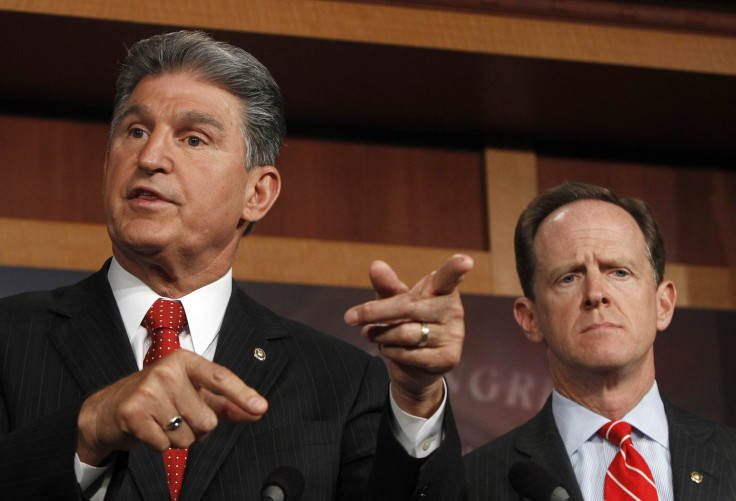Gun Control Debate: 65% America Thinks Senate Should’ve Passed Background Checks Bill

As U.S. Sen. Joe Manchin, D-W.Va., announces plans to bring back his failed background check bill, a new Gallup poll shows that nearly two-thirds of Americans believe the U.S. Senate should have passed the measure the first time around.
During a gun control debate two weeks ago, the Senate voted 54-46 to reject a measure that would have expanded background checks to gun shows and online sales. The bill was co-sponsored by Manchin and Pat Toomey, R-Pa., and was supported by 90 percent of Americans. Both senators are pro-gun and have an "A" rating from the National Rifle Association, the countries largest gun lobby.
Now, 65 percent of Americans say the U.S. Senate should have passed the measure, according to a Gallup poll of 2,049 adults conducted April 22 through April 25. Only 29 percent of those surveyed agree with the Senate’s failure to pass legislation.
Manchin still believes there is time to pass a more narrow form of gun control that tackles both mental health and background checks.
“The bill needs to be clean, I believe,” Manchin said on “Fox News Sunday.” “That’s my belief, that if the bill runs clean and people can vote on this bill up or down based on the merits of this bill, how it protects a gun, a Second Amendment gun person, a law-abiding gun owner, it’s perfect for that person.”
“If you’re going to a gun show, you’re going to expect to have a background check,” he added. “If you’re buying online, whether it’s an out-of-state gun or in-state, a background check. No intervening at all with family transfers or any individual rights whatsoever.”
Manchin also dispelled rumors that Toomey was done with pushing for background checks.
“I don't think he’s done,” Manhin said. “I was with Pat last night, and Pat’s totally committed to this bill.”
When asked by researchers why the Senate should not have passed the background check bill, those who supported Congress’ failure said there would have been an infringement on their Second Amendment rights (40 percent), and others (9 percent) believed their privacy would have been violated.
© Copyright IBTimes 2025. All rights reserved.






















